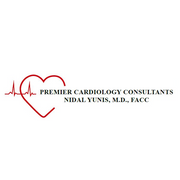
Sodium, or salt, is essential for a proper diet. It helps maintain the water and electrolyte balance in the kidneys. However, too much sodium can negatively impact your blood pressure and heart health. Here's more about why excessive intake can cause high blood pressure and how to ensure you're eating the right amount of salt per day.
How Does Salt Cause Hypertension?
The kidneys filter over 120 quarts of blood daily, extracting toxins and sending them to the bladder for elimination. Activities that induce sweating also cause salt loss through the skin.
When a person consumes an excessive amount of salt in food, or over 2,300 milligrams (mg) daily, they retain sodium. Too much sodium in the blood causes water retention because the mineral draws water into the bloodstream, increasing blood volume.

High blood volume puts more pressure on the blood vessel walls. If blood pressure remains high because of severe salt consumption, vessel walls narrow due to inner lining damage that allows fat to accumulate. As fat increases, vessels become stiff instead of flexible.
Blood delivering nutrients and oxygen to organs decreases because of the extra strain, causing the heart to pump more blood. As the heart tries to help with nutrient and oxygen delivery, blood pressure increases further.
Over time, hypertension weakens the heart muscle to increase the risk of heart failure. It also heightens the risk of heart attack, heart disease, and stroke because of excessive fat in the arteries.
How Can You Lower Your Salt Intake?
Americans consume an average of 3,400 mg of salt daily compared to the recommended limit of 1,500 mg. Lower your salt intake and subsequently your blood pressure by following a low-sodium diet.
Read the sodium content on all packaged foods, and look for those with “reduced sodium” and “low sodium” labels. Opt for fresh vegetables and fruits that do not feature added sodium, and use spices instead of salt when you’re cooking.
If you use canned foods with added salt, such as beans, drain and rinse them before continuing with meal prep. Make takeout and restaurant food occasional indulgences, and inquire about meal nutrients before ordering whenever possible to maintain healthy salt levels.
If you experience high blood pressure signs, such as dizziness or blood spots on the eyes, contact Premier Cardiology Consultants. The cardiologists provide residents throughout Dothan, Ozark, Enterprise, and Andalusia, AL, with treatments for a variety of cardiovascular conditions, including hypertension and heart disease. Call (334) 699-6396 today to make an appointment, or learn more about their services online.
About the Business
Have a question? Ask the experts!
Send your question

